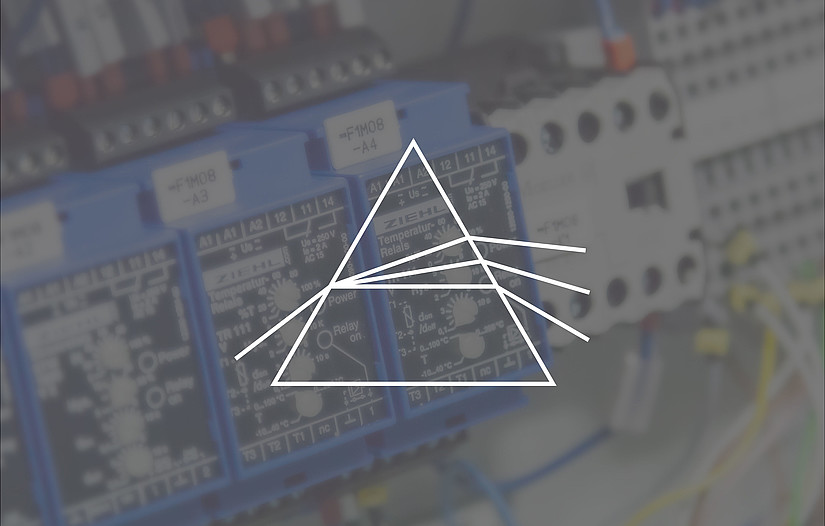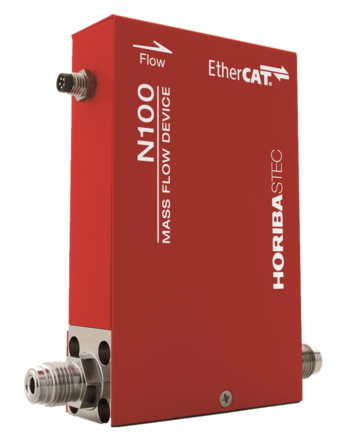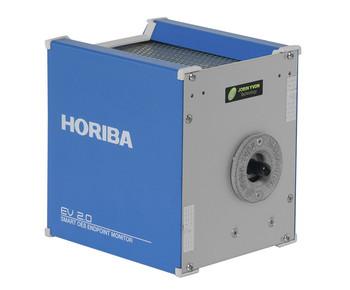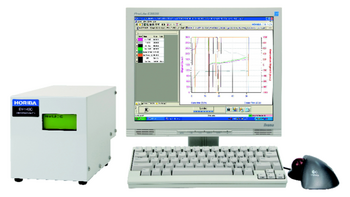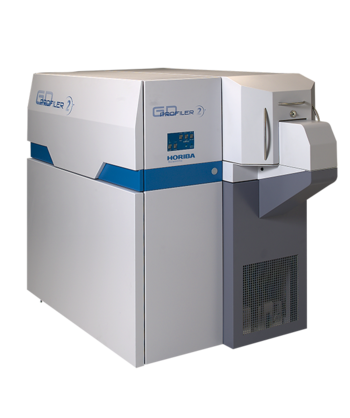Advantage
Fast and highly reliable feedback control
The RU-1000 plasma emission controller with its newly developed algorithm performs fast and highly reliable feedback control. Customers can change the PID value and thus it is possible to optimize the settings for particular conditions
Excellent S/N characteristics with plasma emission
Optimal designs are applied using collimators and other optical parts for accurately measuring slight changes in the amount of light emitted by plasma emission
Special user-friendly software
The special software was designed while taking customer demands to heart; it promises outstanding operability. Customized software can also be developed according to customers’ needs.
Features
The RU-1000 plasma emission controller achieves excellent spatial distribution of deposition on substrates with large surface areas.
Reactive sputtering is performed for film deposition on films and glass substrates used for touch panels. This method is employed to form a deposited film by chemical reactions between sputtered particles and oxygen, nitrogen or similar in a vacuum chamber. The film deposition dramatically accelerates, in a transition region between the reactive mode and metallic mode, the latter of which results in faster film deposition. Such a transition region can be maintained by controlling the reactive gas by adjusting the intensity of plasma emission and the power supply.
The RU-1000 plasma emission controller accelerates film deposition to a pace comparable to that in metallic mode and achieves excellent deposition distribution on substrates with large surface areas. This unit captures signals representing the plasma condition transmitted from the PMT unit and plasma power supply and employs an algorithm written by HORIBA STEC to control a highly responsive mass flow controller also developed by the company.
The flow of the reactive gas is controlled to maintain the transition region between the metallic mode and reactive mode.
From plasma emission detection to gas flow, experience the latest control technologies pioneered by HORIBA STEC.
| 1. | Detects the intensity of plasma emission at a particular wavelength
The PMT unit designed to capture plasma emission can be mounted directly in the vacuum chamber. The plasma emission can be guided from the vacuum chamber to the PMT unit through an optical fiber. Either option can be selected depending on situation. | |
| 2. | Performs feedback control of mass flow controllers
One controller unit can control up to four PMT units and four mass flow controllers. Signals from the plasma power supply can be captured instead of signals from the PMT units. | |
| 3. | Supports various cathode conditions
An original algorithm written by us achieves excellent reactive sputtering with Al2O3, which has thus far been considered difficult. The software also demonstrates stable performance with rotary cathodes. |
| 4. | Highly responsive to changes in plasma emission
A highly responsive mass flow controller (MFC) is essential for performing control of reactive gas while monitoring changes in plasma emission. HORIBA STEC, enjoying the largest market share of MFC production for semiconductor manufacturing systems*, offers the best MFC for each system. | |
*According to survey conducted by HORIBA STEC in 2014
Application
Condition control of the vacuum chamber
Reactive sputtering with functional films or functional substrates is performed in a continuous process for a prolonged period of time. Stable film deposition processes require real-time measurement of the
changing conditions inside the vacuum chamber and the plasma emission, as well as adequate control of the flow rate of the reactive gas being introduced according to the degree of the changes.
Any process for depositing multi-layer films involves the need for increased control of the deposition rate of each film according to the rolling and conveying speed.
The RU-1000 monitors voltage signals of the impedance in the plasma power supply and the intensity of plasma emission. The feedback given to the mass flow controller based on the monitored signals
helps manufactures control the plasma emission at an optimal level and thereby enhance their productivity.
Flow controllers and plasma instruments for process optimization
An array of systems is used to measure and control the conditions inside the vacuum chamber. They ensure stable production and boost productivity by monitoring conditions inside the chamber and maintaining an optimal sputtering process.
A system for measurement of traces of residual gas inside the chamberThe compact MICROPOLE System, which includes a controller with excellent operability, can be easily mounted onto the coating systems you are currently using. Additional features are also available, such as connection with more than one PC at a time and software for analyzing the conditions of residual gas inside the chamber. | |
A system for vaporizing traces of water and liquid materials to be added to the deposition processIt is believed that the functionality of functional thin films is enhanced in the deposition processes by adding traces of vaporized water (H2O) into the chamber. | |
A system for plasma emission analysis in the deposition processThe CCD detector can simultaneously measure a wide range of wavelengths from 200 to 800 nm with a minimum capture time of 20 msec and maximum resolution of 2 nm. | |

